DNA reveals the past and future of coral reefs
New DNA techniques are being used to understand how coral reacted to the end of the last ice age in order to better predict how they will cope with current changes to the climate. James Cook Univer

From 2005 to 2022, the main node of the ARC Centre of Excellence for Coral Reef Studies was headquartered at James Cook University in Townsville, Queensland (Australia)








Maja Adamska
Associate Professor and Program 3 leader
Australian National University

Andrew Baird
Professorial Research Fellow and Chief Investigator
James Cook University

Michele Barnes
Associate Professor
James Cook University

David Bellwood
Distinguished Professor and Chief Investigator
James Cook University
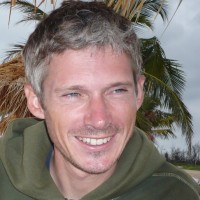
Yves-Marie Bozec
Postdoctoral Research Fellow
University of Queensland
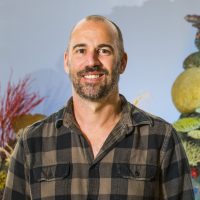
Tom Bridge
Senior Research Fellow; Senior Curator
James Cook University and Queensland Museum Network

Severine Choukroun
Research Associate
James Cook University

Joshua Cinner
Professorial Research Fellow, Chief Investigator and Program 1 Leader
James Cook University

Peter Cowman
Senior Research Fellow in Ecosystem Dynamics
James Cook University

Graeme S. Cumming
Professor; Centre Director; Coral Reef Research Leader and Program 2 Leader
James Cook University

Jennifer Donelson
Associate professor and ARC Future Fellow
James Cook University, Townsville
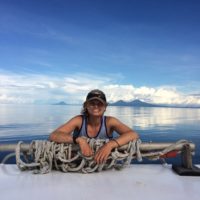
Gemma Galbraith
Postdoctoral Research Associate
James Cook University

Alana Grech
Associate Professor; Assistant Director; Program 2 Leader
James Cook University

Georgina Gurney
Senior Research Fellow: Environmental Social Science
James Cook University
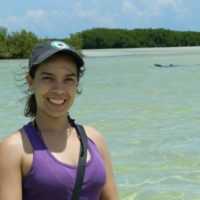
Nataly Gutierrez Isaza
Postdoctoral Research Fellow
The University of Queensland

April Hall (née Boaden)
Advance Queensland Postdoctoral Research Fellow
James Cook University

Hugo B. Harrison
ARC and AIMS Joint Research Fellow
James Cook University
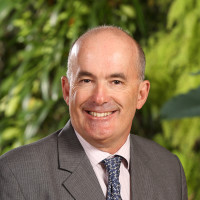
Ove Hoegh-Guldberg
Professor, Deputy Director, and Chief Investigator
University of Queensland

Andrew Hoey
Professorial Research Fellow
James Cook University

Mia Hoogenboom
Associate Professor, Chief Investigator and Program 3 Leader
James Cook University

Victor Huertas Martin
Research Officer & Media Assistant
James Cook University

Geoff P. Jones
Professor and Chief Investigator
James Cook University
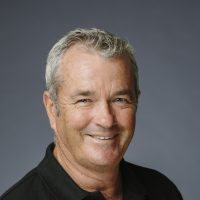
Mike Kingsford
Professor and Chief Investigator
James Cook University

Ryan Lowe
Professor, Chief Investigator and Program 3 Leader
University of Western Australia
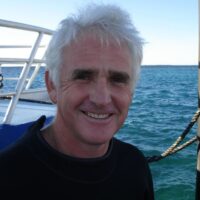
Malcolm McCulloch
Professor, Deputy Director, and Chief Investigator
The University of Western Australia

David J. Miller
Professor and Chief Investigator
James Cook University

Tiffany Morrison
Professor, Chief Investigator, Program 1 Leader and Social Science Research Leader
James Cook University

Peter Mumby
Professor and Chief Investigator
University of Queensland
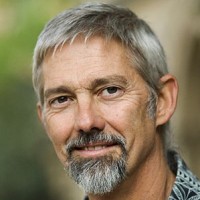
Stephen Palumbi
Professor and Partner Investigator
Hopkins Marine Station, Stanford University

John Pandolfi
Professor, Chief Investigator and Program 2 Leader
University of Queensland
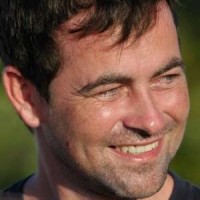
Serge Planes
Partner Investigator
University of Perpignan, France

Morgan Pratchett
Professorial Research Fellow and Chief Investigator
James Cook University
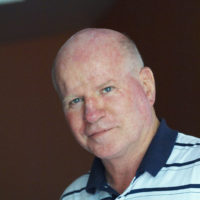
Bob Pressey
Professor; Chief Investigator and Program 1 Leader
James Cook University

Jodie Rummer
Professor and Research Associate
James Cook University

Garry Russ
Professor and Chief Investigator
James Cook University
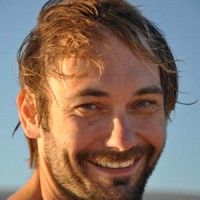
Greg Torda
Senior Research Fellow (DECRA)
James Cook University

Sue-Ann Watson
Senior Research Fellow
James Cook University
New DNA techniques are being used to understand how coral reacted to the end of the last ice age in order to better predict how they will cope with current changes to the climate. James Cook Univer
A new study on the effects of climate change in five tropical countries has found fisheries are in more trouble than agriculture, and poor people are in the most danger. Distinguished Profess
James Cook University researchers have found brightly coloured fish are becoming increasingly rare as coral declines, with the phenomenon likely to get worse in the future. Christopher Hemingson, a
Researchers working with stakeholders in the Great Barrier Reef region have come up with ideas on how groups responsible for looking after the reef can operate more effectively when the next bleaching
Abstract: As marine species adapt to climate change, their heat tolerance will likely be under strong selection. Individual variation in heat tolerance and its heritability underpin the potential fo
Abstract: The Reef Ecology Lab in KAUST’s Red Sea Research Center explores many aspects of movement ecology of marine organisms, ranging from adult migrations to intergenerational larval dispersal
Abstract: Macroalgal meadows are a prominent, yet often maligned component of the tropical seascape. Our work at Ningaloo reef in WA demonstrate that canopy forming macroalgae provide habitat for ad
Abstract: Sharks are generally perceived as strong and fearsome animals. With fossils dating back at least 420 million years, sharks are not only majestic top predators but they also outlived dinosa
Abstract: Connectivity plays a vital role in many ecosystems through its effects on fundamental ecological and evolutionary processes. Its consequences for populations and metapopulations have been
Abstract: Evolution of many eukaryotic organisms is affected by interactions with microbes. Microbial symbioses can ultimately reflect host’s diet, habitat range, and even body shape. However, how
Abstract: The past few years have seen unprecedented coral bleaching and mortality on the Great Barrier Reef (GBR) but the consequences of this on biodiversity are not yet known. This talk will expl